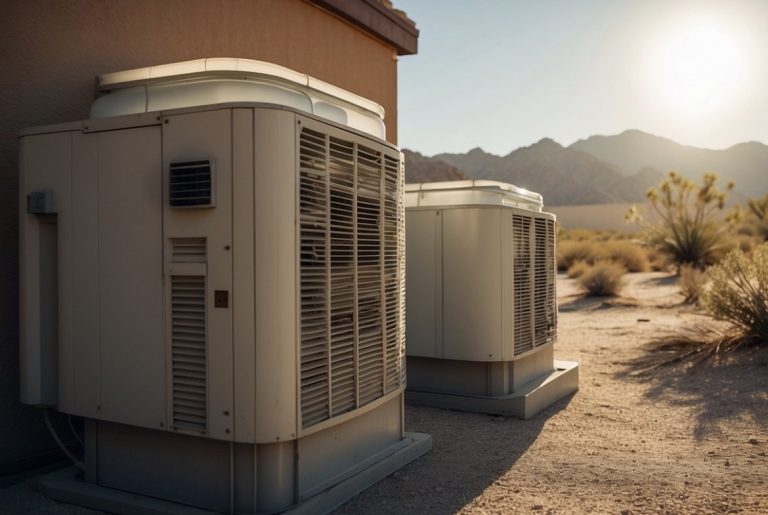Selecting the right air conditioner for your home involves more than just finding a way to combat the heat. It’s about choosing a system that offers efficient performance, fits your living space adequately, and aligns with your budget. This guide is designed to assist homeowners in navigating the complex landscape of air conditioning solutions by providing essential information on various types of air conditioners, their energy efficiency, and sizing considerations.
When considering an air conditioning unit, one must evaluate the size of the area to be cooled and the unit’s capacity to ensure optimal performance. An air conditioner that’s too large will not only be more expensive but also less effective at removing humidity, leaving the environment uncomfortably damp. Conversely, an undersized system will struggle to cool the space, leading to excessive energy consumption and potential overworking of the unit, which can reduce its lifespan.
Energy efficiency is another critical factor in the decision-making process. Air conditioners are major energy consumers, and selecting a unit with a high Energy Efficiency Ratio (EER) or Seasonal Energy Efficiency Ratio (SEER) can lead to significant savings on electricity bills. Additionally, understanding the latest features and technologies, such as programmable thermostats and inverter technology, can further enhance comfort levels and contribute to energy savings over time.
Assessing Your Cooling Needs
To choose the right air conditioner, homeowners must accurately assess their cooling requirements. The process includes understanding space dimensions, local climate conditions, and the importance of energy efficiency.
Understanding Room Size and Air Conditioner Capacity
When selecting an air conditioner, the unit’s capacity must match the room size to effectively cool the space. Air conditioners’ cooling power is measured in British Thermal Units (BTUs), where a higher BTU rating indicates a greater cooling capacity.
For a standard room:
| Room Area (sq ft) | BTU Capacity |
| 150 – 250 | 6,000 BTUs |
| 250 – 300 | 7,000 BTUs |
| 300 – 350 | 8,000 BTUs |
| 350 – 400 | 9,000 BTUs |
Considering Climate and Environmental Factors
The climate in a homeowner’s region significantly affects the air conditioner choice. In areas with high humidity and heat, like Houston, HVAC professionals often recommend units with higher BTU ratings and dehumidifying capabilities to ensure comfort.
Factors to consider:
- Humidity Levels: High humidity may warrant a higher capacity unit.
- Sun Exposure: Rooms with more sun exposure require air conditioners with more power.
- Insulation: Well-insulated homes may need less cooling capacity.
Energy Efficiency and SEER Ratings
Energy efficiency is assessed with the Seasonal Energy Efficiency Ratio (SEER) ratings, indicating the amount of cooling an air conditioner delivers per watt of electricity.
- SEER rating: The higher the SEER rating, the more efficient the unit.
- Older systems: Typically range from 6 to 10 SEER.
- Modern systems: Usually 13 SEER or more, with some exceeding 21 SEER for ultra-high efficiency.
Selecting an air conditioner with a high SEER rating not only reduces environmental impact but also leads to lower electricity bills.
Selecting the Right Air Conditioner Type
When deciding on an air conditioning unit for a home, key factors such as space, cooling requirements, and installation should be considered. Different types cater to various needs, and a good grasp of each will guide homeowners in making an informed decision.
Central Air Conditioning Systems
Central air conditioning is suitable for cooling multiple rooms or an entire house. Houston’s HVAC professionals often recommend central systems for their efficiency in large spaces. They consist of an outdoor compressor/condenser, an indoor handling unit, and ductwork to distribute cool air. Installation requires space and may involve extensive ductwork setup.
Ductless Mini-Split Air Conditioners
Ideal for homes without ductwork or for adding air conditioning to new spaces, ductless mini-splits have an outdoor compressor unit connected to one or more indoor air handlers. They are known for their:
- Energy efficiency: No energy loss through ducts.
- Flexibility: Specific zones in a home can be cooled independently.
Window Unit Air Conditioners
Window units are popular for single rooms and are easy to install in most window frames. They are a compact, self-contained solution that is:
- Cost-effective: Lower initial investment than other types.
- Simple to set up: Limited to no professional assistance required.
Portable Air Conditioners
Portable air conditioners offer flexibility and are a quick fix for immediate cooling needs. They can be moved from room to room and require only an electrical outlet and access to a window for the exhaust hose. Their features include:
- Mobility: Can be relocated as needed.
- Installation: No permanent installation required, making it suitable for temporary setups or rental properties.

0 Comments